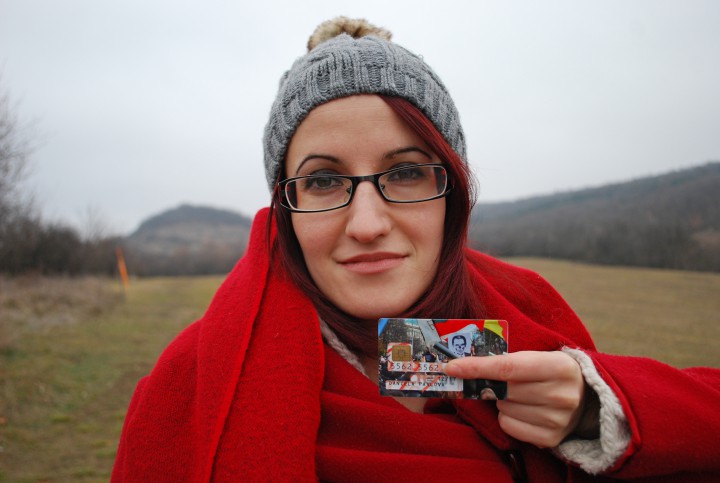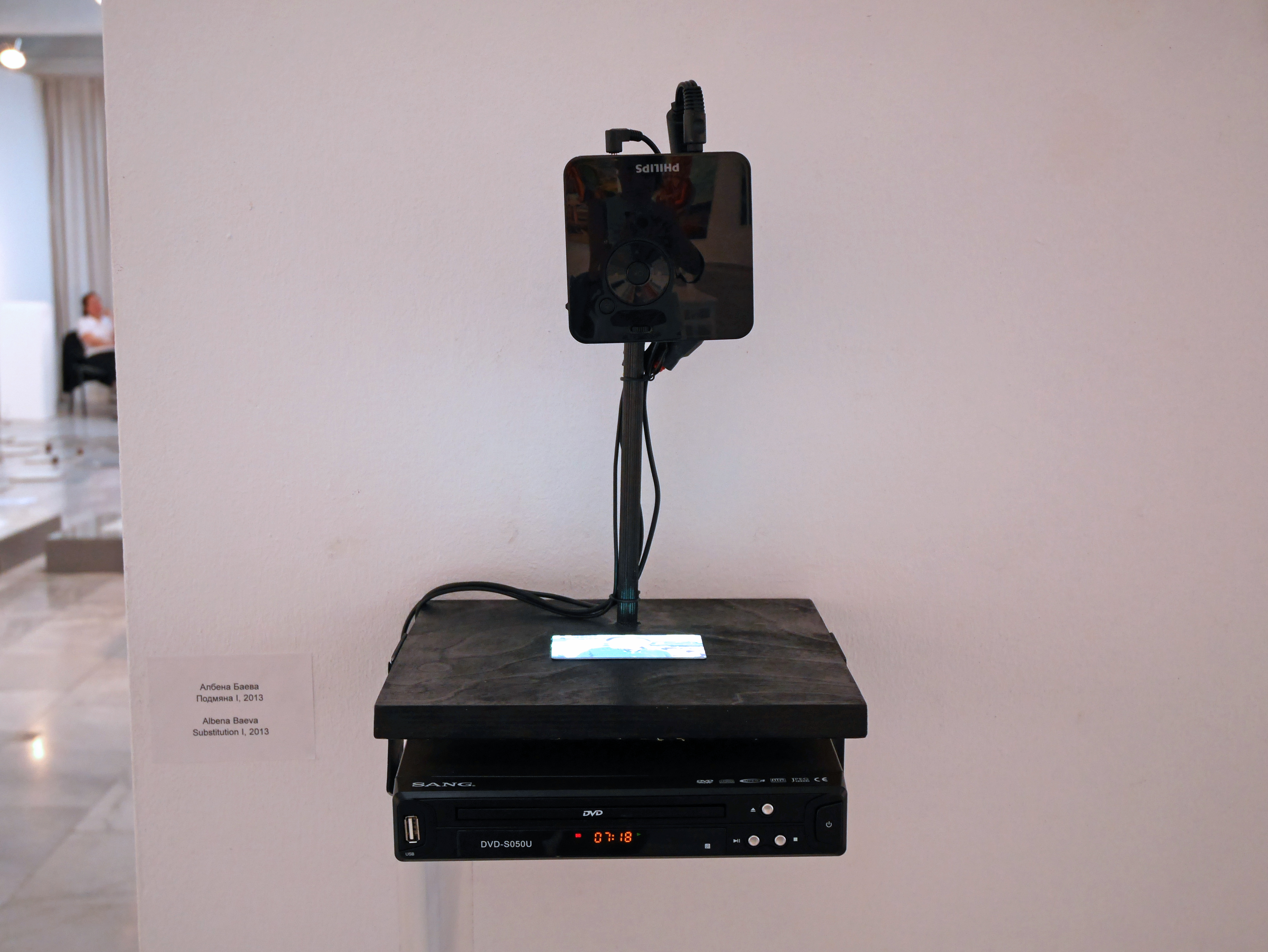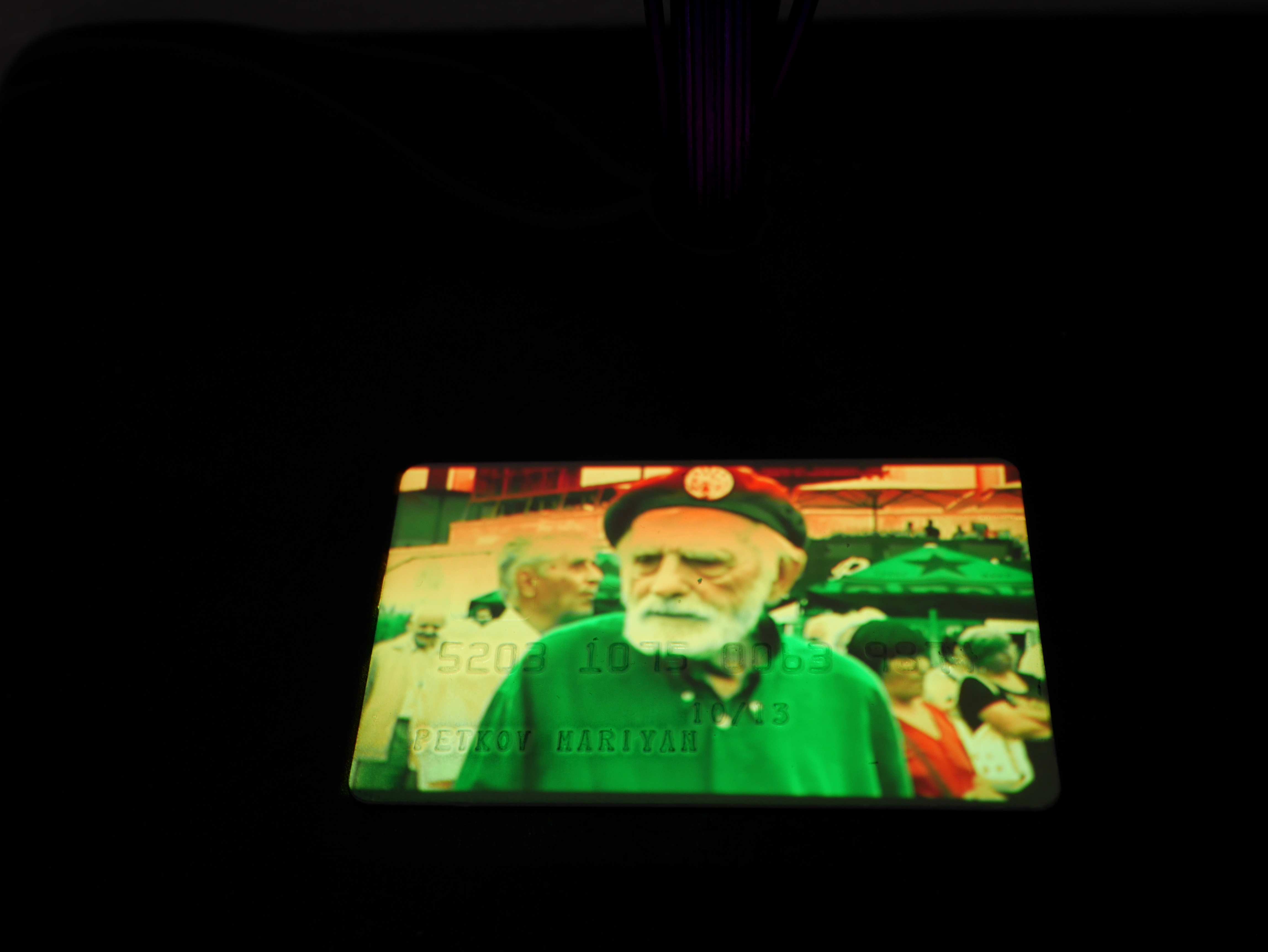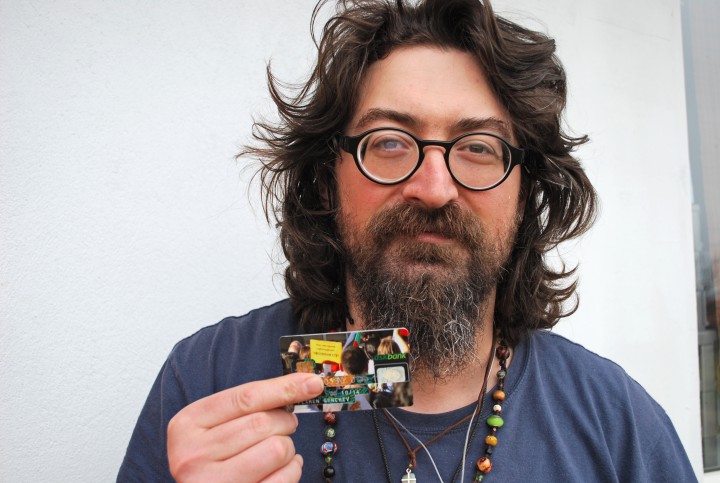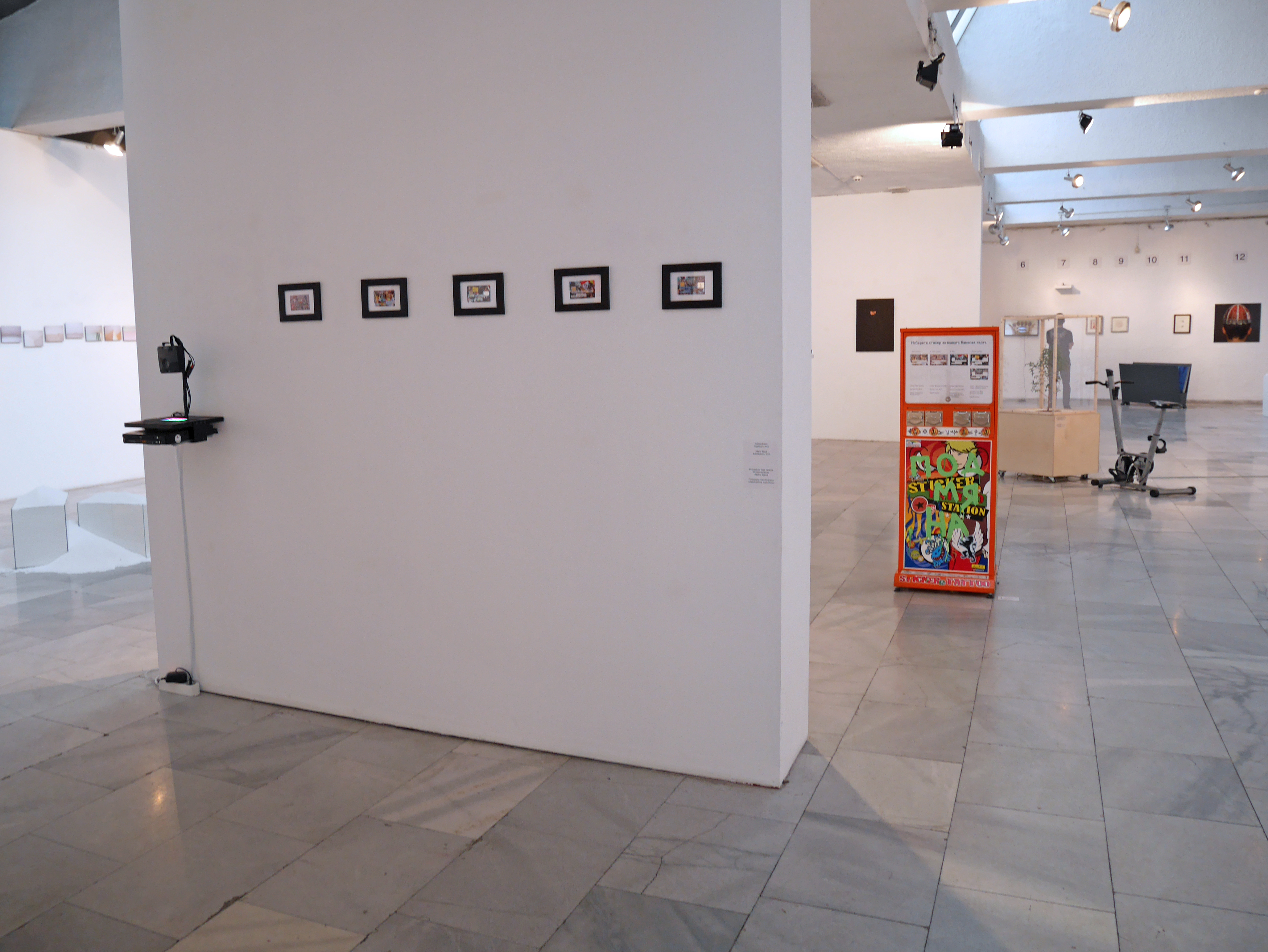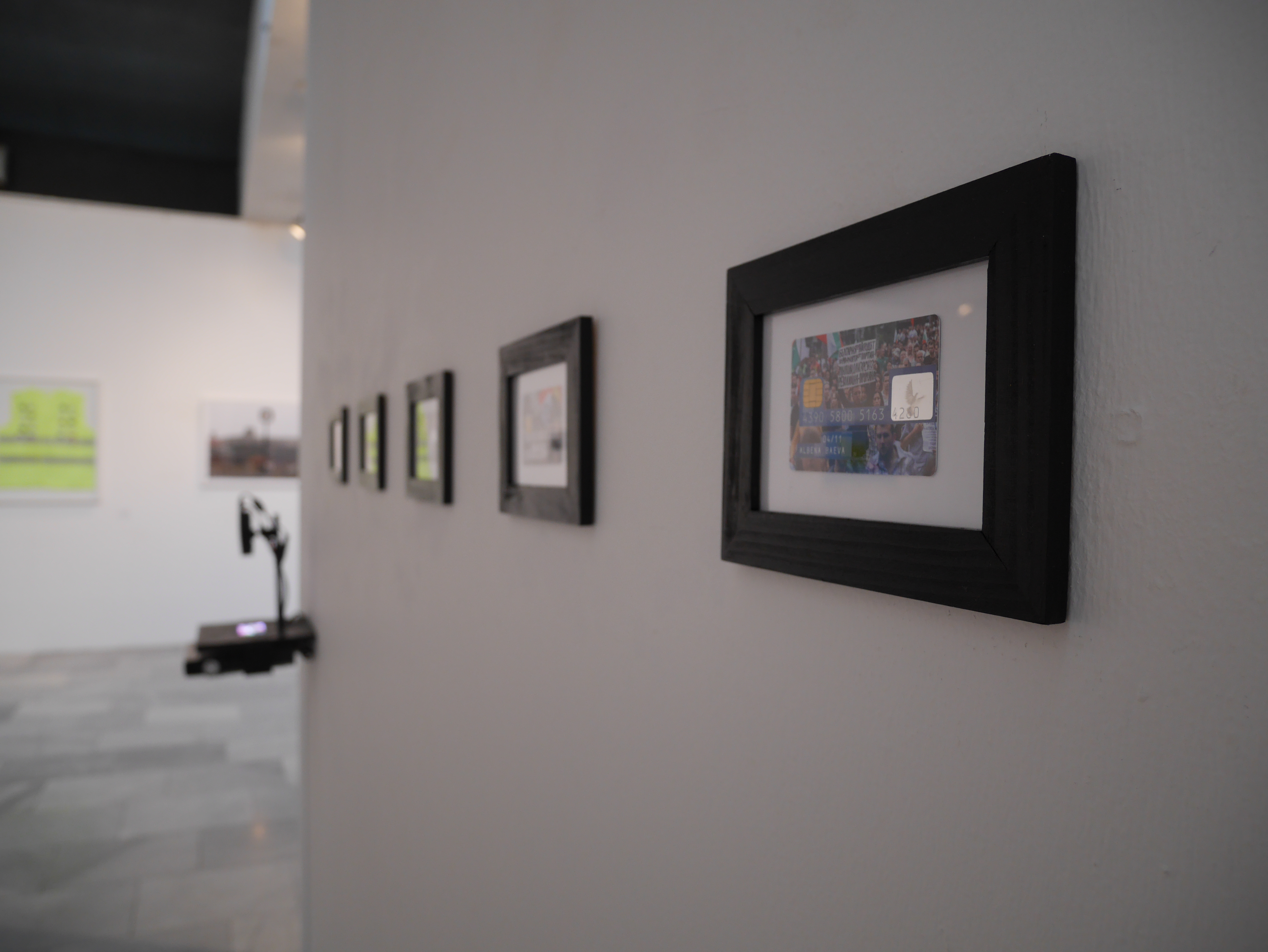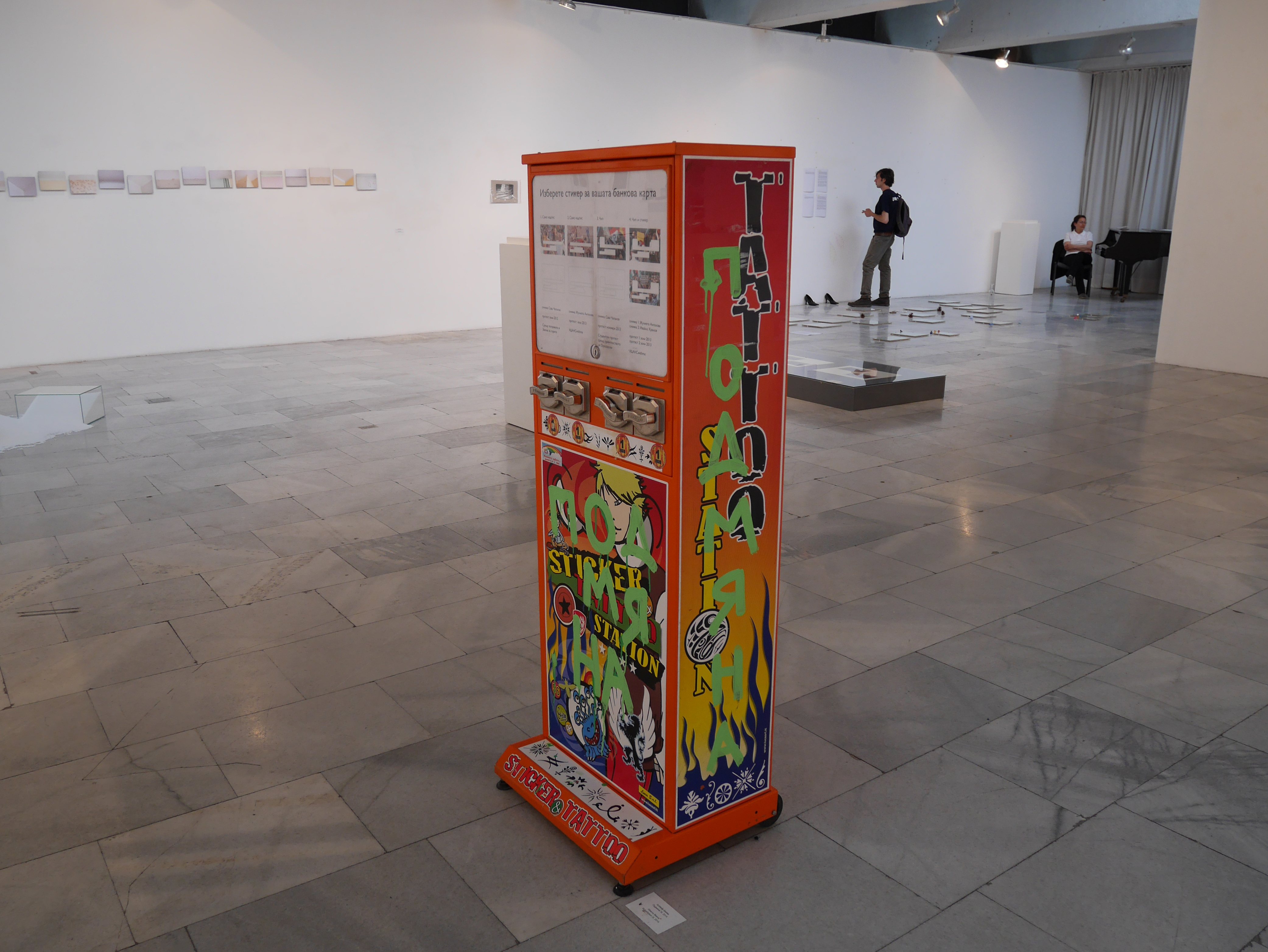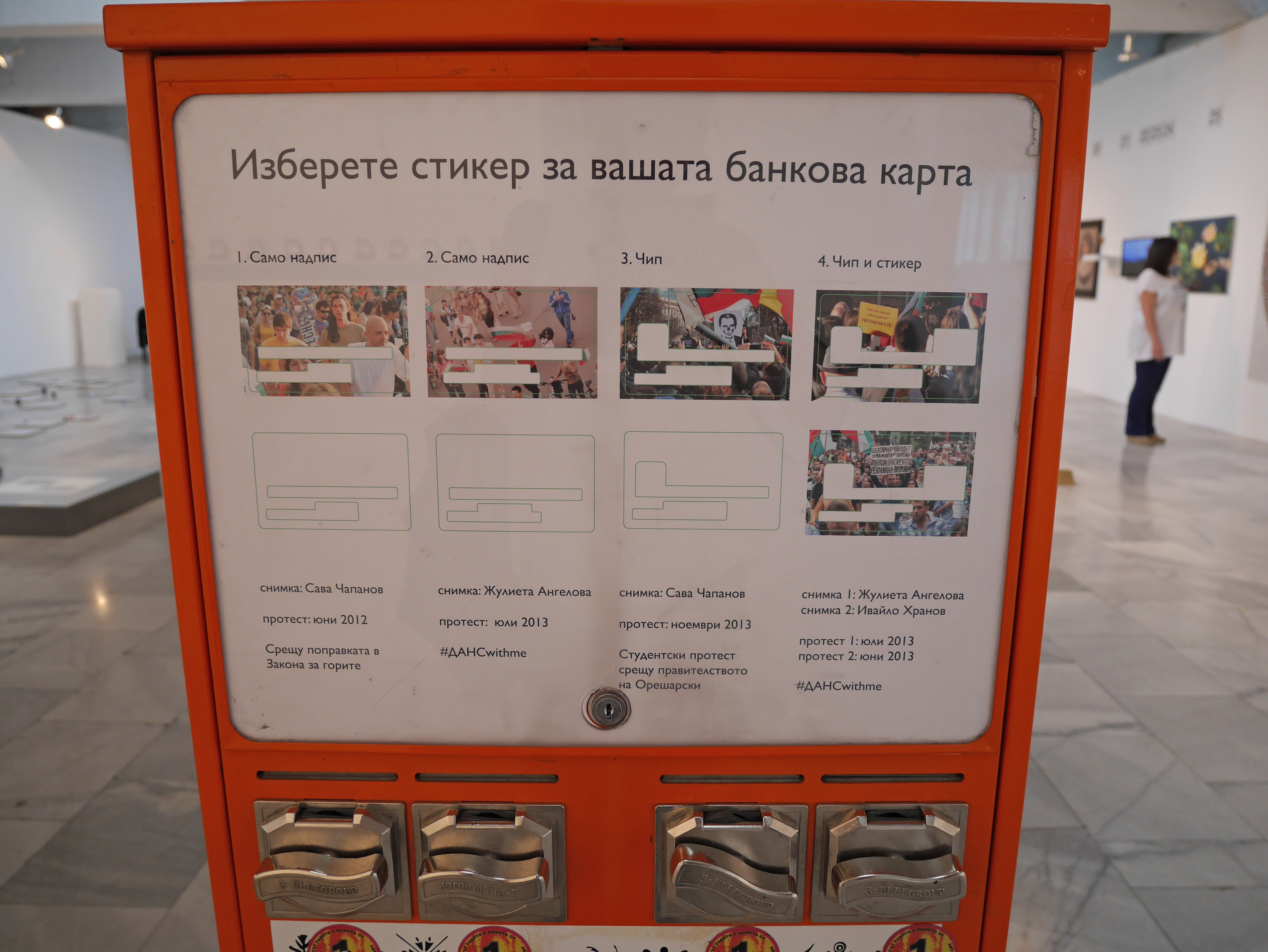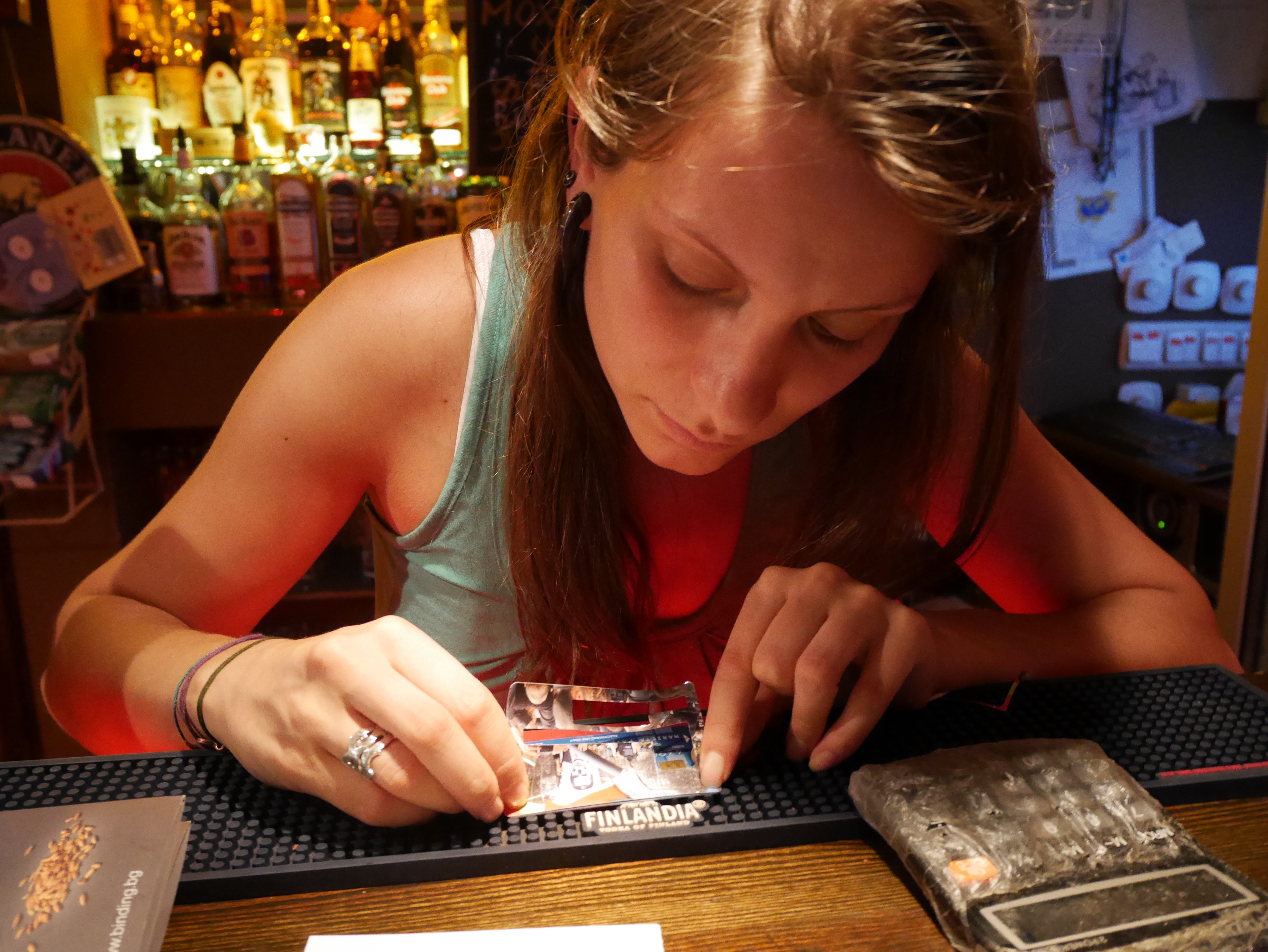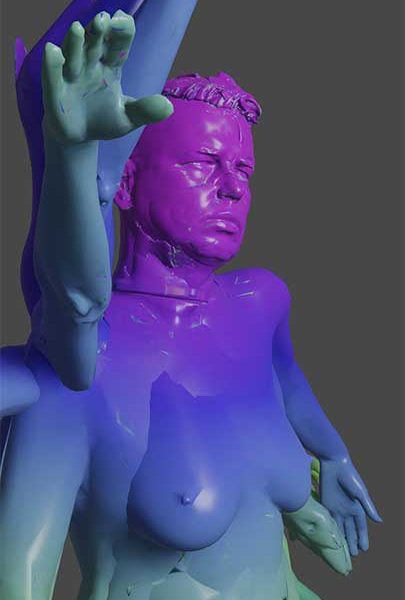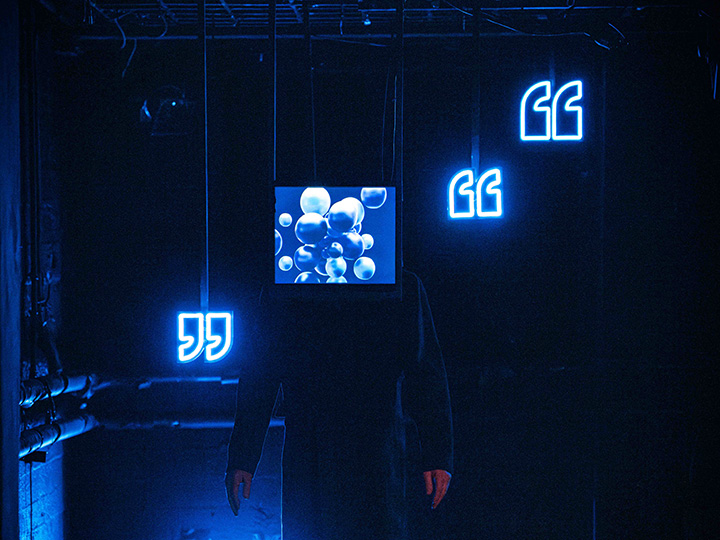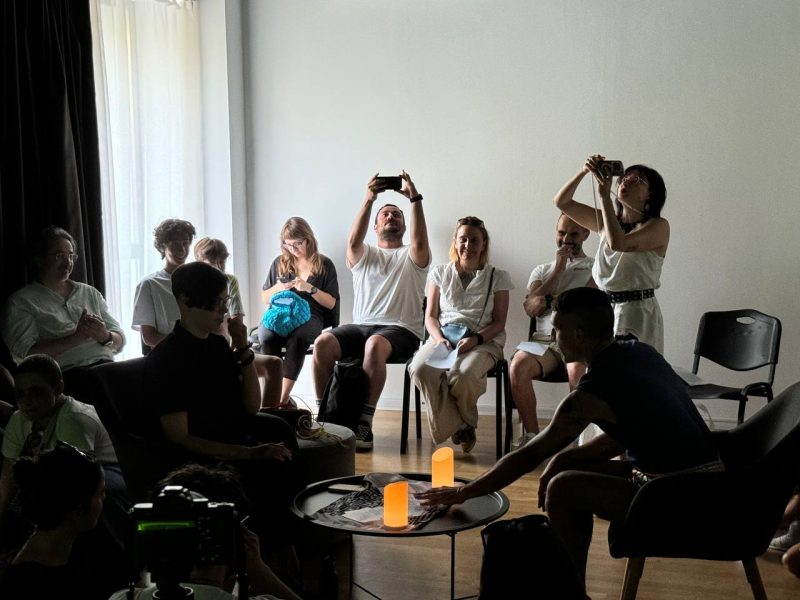Substitution explores the conflict arising from an intertwined global financial and banking system liable to produce instability and crisis, and civil society protests against its deficiencies. The project is rooted in the current political protests in Sofia which are comparable to other protest in other countries around the world from recent years that all express a fundamental critique of the political and economic global order. At the same time the Bulgarian protests also address local political failures stemming to a great degree from the interconnectedness of political actors and shady business interests with banks being one of the most visible faces of the latter.
Substitution consists of a normal debit or credit card visually transformed into a “protest card” by applying a custom created sticker. The design of the sticker displays photographic images form the continuing protests in Bulgaria and preserves at the same time the functionality of the card. Different sticker models are produced with respect to the technical requirements of the different models of debit and credit cards used currently by different banks. Numbers, chips and other important information are left visible. In this way, the bank card remains fully functional. The protest sticker are being sold to the public. Enclosed in the redesign-pack is also an instruction sheet that explains to the customer how to create his or her own sticker with a private photo of the protest.
The presentation of Substitution in a gallery space consists of three elements. One part of the project is a video installation in which found footage from the Bulgarian protests is mapped on an existing bank card. A second part of the presentation is a visually transformed card with the original sticker design. The third part is a limited series of stickers in multiple designs that can be sold via special vending machine for stickers.
One incentive for this project was an open call of the Bulgarian Societe General Bank asking in 2012 for design ideas for their new cards. Under the motto “Your art on a contemporary card” the bank asked professional and hobby artists to post their designs on a Facebook page created for the event and named with the catchy phrase “I love contemporary art”. Probably aware of the problematic image of banks globally after the latest financial crisis and locally due to intransparent economic and political connections, the event managers of Societe General Bank took care that the design projects should first be checked by a moderator before letting the public vote on them.
The bank launching this contemporary art & banks-event is actually one of the clean players on the Bulgarian market according to a message wired to Washington by American ambassador to Bulgaria John Beyrle, which appeared on the site of Bulgarian Wikileaks-partner Bivol and was quoted in an article of French newspaper Le Monde. However there are other “rotten apples” that endanger Bulgaria’s financial and bank system. “The major problems in the Bulgarian banking system include money laundering by Bulgarian and foreign criminals and connected lending“ Beyrle wrote in 2006. “Connected lending continues to be a problem among some banks as their owners funnel money to related – less competitive – companies, with no intention of repaying. This leaves legitimate investors and account-holders holding the bag when bad loans go uncollected.” The bad practices of some banks, among them major players such as First Investment Bank, Corporate Commercial Bank, DZI Bank or Central Cooperative Bank, seem to be known to the administration. According to the ambassador “banking and financial authorities are aware of the most notorious banks and claim to be working hard to … bring practices in line with Western norms … However, a number of domestic banks apparently manage to escape strict scrutiny.”
The problematic banking practices as well as the political blindness towards them are part of the deficiencies of the political and economic system that fuel the current protest in Bulgaria. Putting the protesters on a bank card is a reference towards one of the major political debates of Bulgarian society today.
Credits:
text: Gergana Baeva
consultant: Nikolay Stoyanov
